Aromatherapy is a holistic healing treatment that uses natural plant extracts to promote physical and emotional well-being. Essential oils are the main components of aromatherapy, and they are extracted from flowers, herbs, and other plants. These oils can be inhaled, applied to the skin, or ingested to provide a range of health benefits.
Disclaimer: This article is provided for informational purposes only and should not replace professional medical advice. Please consult with a qualified healthcare practitioner or herbalist before using any herbal remedies.
The use of aromatherapy can provide both mental and physical benefits. For example, inhaling essential oils can help to reduce stress, anxiety, and depression. Some oils, such as lavender, chamomile, and ylang-ylang, have calming properties that can help to soothe the mind and promote relaxation. Other oils, such as peppermint and rosemary, have invigorating properties that can help to boost energy levels and improve mental clarity.
When applied topically, essential oils can also help to relieve physical symptoms such as pain, inflammation, and skin irritations. For example, tea tree oil has antibacterial and antifungal properties that can help to treat acne, while eucalyptus oil can help to relieve muscle and joint pain. Aromatherapy is a versatile treatment that can be used to address a wide range of physical and mental health concerns, making it a popular alternative therapy for many people.
Understanding Aromatherapy~ Benefits of Aromatherapy
Aromatherapy is a holistic approach to healing that uses essential oils derived from plants to promote physical and mental well-being. The practice of using aromatics for healing dates back to ancient times, where it was used by the Egyptians, Greeks, and Romans for medicinal and spiritual purposes.
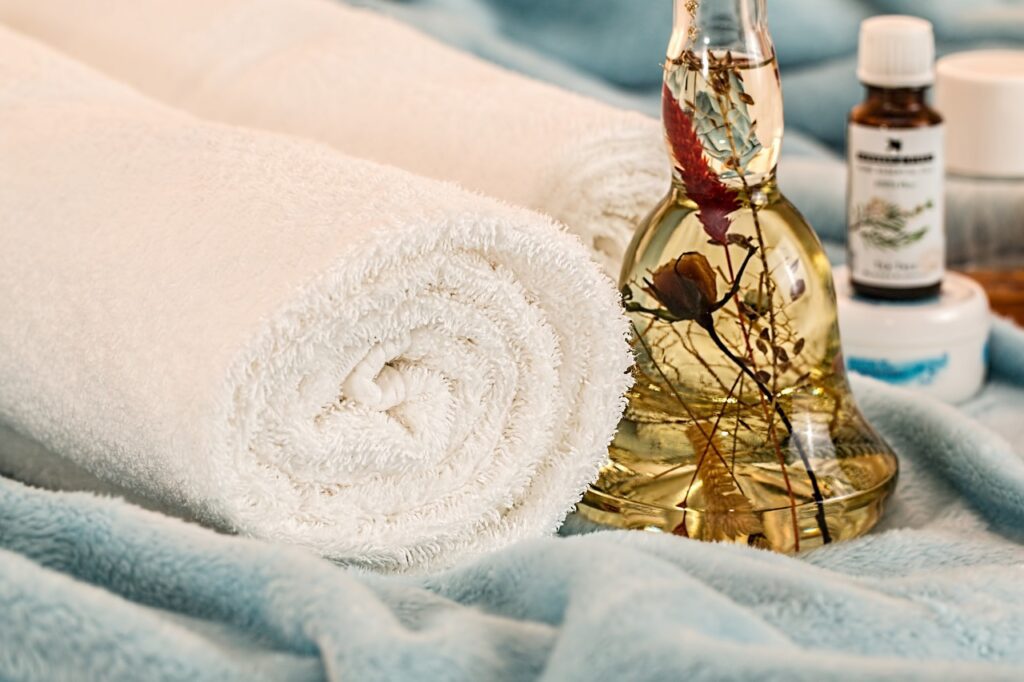
Today, aromatherapy is used in a variety of settings, including spas, hospitals, and homes. Essential oils are extracted from various parts of plants, such as flowers, leaves, and roots, through a process called distillation. The oils are then used in a variety of ways, including inhalation, topical application, and ingestion.
The therapeutic benefits of aromatherapy are believed to come from the aroma of the essential oils, which can stimulate the limbic system, the part of the brain that controls emotions and memories. Different essential oils have different properties and can be used to promote relaxation, relieve stress, and alleviate pain. For example, lavender is known for its calming properties, while peppermint is used to relieve headaches and improve mental clarity.
While the use of aromatherapy is generally considered safe, it is important to use caution when using essential oils. Some oils can cause skin irritation or allergic reactions, and some oils should not be used during pregnancy or by people with certain medical conditions. It is important to consult with a qualified aromatherapist or healthcare provider before using essential oils.
In summary, aromatherapy is a holistic approach to healing that uses essential oils derived from plants to promote physical and mental well-being. The practice has a long history dating back to ancient times and is used in a variety of settings today. While generally safe, caution should be used when using essential oils, and it is important to consult with a qualified professional before use.
Essential Oils in Aromatherapy
Aromatherapy is a form of alternative medicine that uses essential oils to promote physical and mental well-being. Essential oils are concentrated plant extracts that have been used for centuries to treat various ailments. Each essential oil has its own unique properties and benefits.

Lavender~ Benefits of Aromatherapy
Lavender is one of the most popular essential oils used in aromatherapy. It is known for its calming and relaxing properties, making it an excellent choice for reducing stress and anxiety. Lavender oil can also help improve sleep quality and relieve headaches.
Peppermint~ Benefits of Aromatherapy
Peppermint oil is another commonly used essential oil in aromatherapy. It is known for its cooling and invigorating properties, making it an excellent choice for reducing fatigue and increasing mental clarity. Peppermint oil can also help relieve digestive issues and soothe sore muscles.
Rose~ Benefits of Aromatherapy
Rose oil is a luxurious essential oil that is often used in perfumes and skincare products. It is known for its calming and uplifting properties, making it an excellent choice for reducing anxiety and promoting relaxation. Rose oil can also help improve skin texture and reduce the appearance of scars.
Lemon~ Benefits of Aromatherapy
Lemon oil is a refreshing essential oil that is known for its invigorating and energizing properties. It is an excellent choice for reducing fatigue and improving mental clarity. Lemon oil can also help improve digestion and boost the immune system.
Rosemary~ Benefits of Aromatherapy
Rosemary oil is a stimulating essential oil that is known for its ability to improve memory and concentration. It is an excellent choice for reducing mental fatigue and increasing mental clarity. Rosemary oil can also help improve digestion and relieve muscle pain.
Sandalwood~ Benefits of Aromatherapy
Sandalwood oil is a grounding essential oil that is known for its calming and relaxing properties. It is an excellent choice for reducing stress and anxiety. Sandalwood oil can also help improve sleep quality and reduce inflammation.
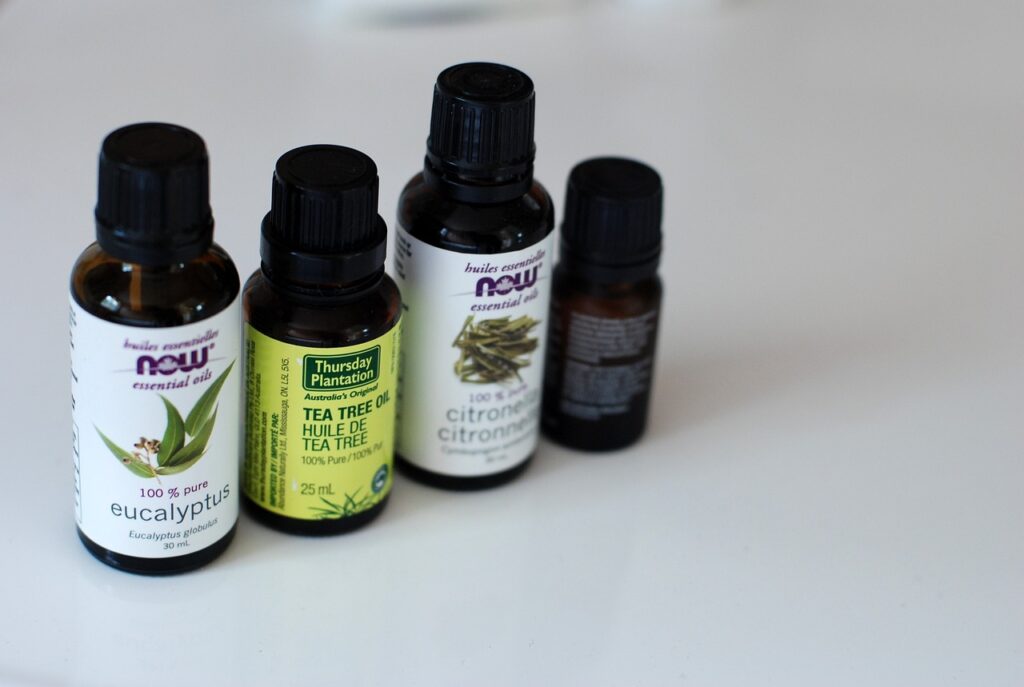
Eucalyptus~ Benefits of Aromatherapy
Eucalyptus oil is a refreshing essential oil that is known for its ability to clear the sinuses and improve respiratory function. It is an excellent choice for reducing congestion and promoting relaxation. Eucalyptus oil can also help relieve muscle pain and improve skin health.
Ginger~ Benefits of Aromatherapy
Ginger oil is a warming essential oil that is known for its ability to improve digestion and reduce nausea. It is an excellent choice for reducing inflammation and promoting relaxation. Ginger oil can also help relieve muscle pain and improve respiratory function.
Lemongrass~ Benefits of Aromatherapy
Lemongrass oil is a refreshing essential oil that is known for its ability to reduce stress and anxiety. It is an excellent choice for promoting relaxation and improving sleep quality. Lemongrass oil can also help improve digestion and reduce inflammation.
Bergamot~ Benefits of Aromatherapy
Bergamot oil is a citrusy essential oil that is known for its uplifting and refreshing properties. It is an excellent choice for reducing stress and anxiety. Bergamot oil can also help improve skin health and reduce inflammation.

Chamomile~ Benefits of Aromatherapy
Chamomile oil is a calming essential oil that is known for its ability to reduce stress and anxiety. It is an excellent choice for promoting relaxation and improving sleep quality. Chamomile oil can also help improve skin health and reduce inflammation.
Frankincense~ Benefits of Aromatherapy
Frankincense oil is a grounding essential oil that is known for its calming and relaxing properties. It is an excellent choice for reducing stress and anxiety. Frankincense oil can also help improve skin health and reduce inflammation.
Geranium~ Benefits of Aromatherapy
Geranium oil is a balancing essential oil that is known for its ability to reduce stress and anxiety. It is an excellent choice for promoting relaxation and improving skin health. Geranium oil can also help reduce inflammation and improve respiratory function.
Jasmine~ Benefits of Aromatherapy
Jasmine oil is a luxurious essential oil that is known for its calming and uplifting properties. It is an excellent choice for reducing stress and anxiety. Jasmine oil can also help improve skin health and reduce inflammation.
Orange~ Benefits of Aromatherapy
Orange oil is a refreshing essential oil that is known for its ability to uplift and energize. It is an excellent choice for reducing stress and anxiety. Orange oil can also help improve digestion and reduce inflammation.
Black Pepper~ Benefits of Aromatherapy
Black pepper oil is a warming essential oil that is known for its ability to improve circulation and reduce muscle pain. It is an excellent choice for promoting relaxation and reducing stress. Black pepper oil can also help improve respiratory function and reduce inflammation.
Tea Tree~ Benefits of Aromatherapy
Tea tree oil is a powerful essential oil that is known for its ability to fight bacteria and viruses. It is an excellent choice for promoting skin health and reducing inflammation. Tea tree oil can also help improve respiratory function and reduce stress.
Fennel~ Benefits of Aromatherapy
Fennel oil is a warming essential oil that is known for its ability to improve digestion and reduce bloating. It is an excellent choice for promoting relaxation and reducing stress. Fennel oil can also help improve respiratory function and reduce inflammation.
Methods of Aromatherapy
Aromatherapy is the use of essential oils for therapeutic purposes. There are various methods of aromatherapy, including inhalation and topical application.
Inhalation
Inhalation is one of the most popular methods of aromatherapy. It involves the use of a diffuser, steam inhalation, or direct inhalation. Inhaling essential oils can help to alleviate respiratory issues, boost the immune system, and improve mood.
A diffuser is a device that disperses essential oils into the air. It can be used in a room to create a calming atmosphere or to alleviate respiratory issues. Steam inhalation involves adding a few drops of essential oils to a bowl of hot water and inhaling the steam. This method is particularly effective for respiratory issues such as colds and sinus infections. Direct inhalation involves inhaling essential oils directly from the bottle or a cotton ball.
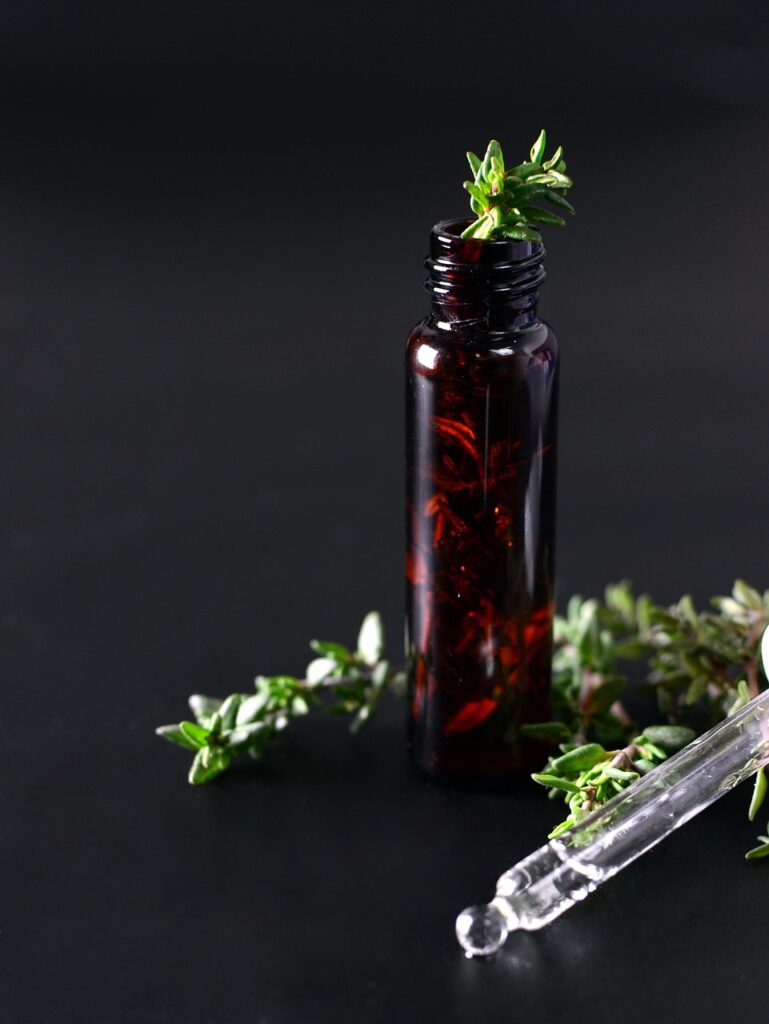
Topical Application
Topical application involves applying essential oils directly to the skin. Essential oils can be added to lotions, creams, or carrier oils. This method is effective for treating skin conditions, reducing inflammation, and relieving pain.
When using essential oils topically, it is important to dilute them with a carrier oil. Essential oils are highly concentrated and can cause skin irritation if used undiluted. Carrier oils such as coconut oil, jojoba oil, and almond oil can help to dilute the essential oils and make them safe for use on the skin.
Overall, aromatherapy can provide both mental and physical benefits. When used correctly, essential oils can help to alleviate stress, boost the immune system, and improve overall well-being.
Mental Benefits of Aromatherapy
Aromatherapy has been shown to have several mental benefits. The use of essential oils can help improve mood, reduce anxiety and stress, and promote relaxation. The sense of smell plays an important role in these benefits, as the aroma of essential oils can directly affect the brain’s limbic system, which is responsible for emotions, memories, and arousal.
One of the most significant mental benefits of aromatherapy is its ability to reduce anxiety and stress. Several studies have shown that inhaling essential oils such as lavender, bergamot, and chamomile can help reduce anxiety levels and promote relaxation. These oils can also help reduce stress by slowing down the heart rate and lowering blood pressure.
Aromatherapy can also be effective in improving mood and reducing symptoms of depression. Essential oils such as lemon, grapefruit, and peppermint can help boost energy and improve alertness, while oils such as lavender and ylang-ylang can help promote calm and relaxation.
In addition to its mood-boosting and stress-reducing benefits, aromatherapy can also improve cognitive function. Essential oils such as rosemary and peppermint have been shown to improve memory and attention, while also promoting alertness and energy.
Overall, the mental benefits of aromatherapy are numerous and can have a significant impact on our overall wellness. By incorporating essential oils into our daily routine, we can promote relaxation, reduce stress and anxiety, and improve our mood and cognitive function.
Physical Benefits of Aromatherapy
We know that aromatherapy has been used for centuries to improve physical health and well-being. Here are some of the physical benefits of aromatherapy:
Pain Relief
Many essential oils have analgesic properties and can help relieve pain. Research has shown that aromatherapy can be effective in reducing pain associated with conditions such as headaches, arthritis, and menstrual cramps.
Skin Health
Aromatherapy can also be beneficial for skin health. Essential oils such as lavender and tea tree oil have antibacterial and anti-inflammatory properties that can help treat acne and other skin conditions. Aromatherapy can also help improve skin hydration and reduce the appearance of fine lines and wrinkles.
Blood Pressure and Heart Rate
Studies have shown that aromatherapy can help lower blood pressure and heart rate. Essential oils such as lavender, ylang-ylang, and bergamot have been found to have a calming effect on the body, which can help reduce stress and anxiety.
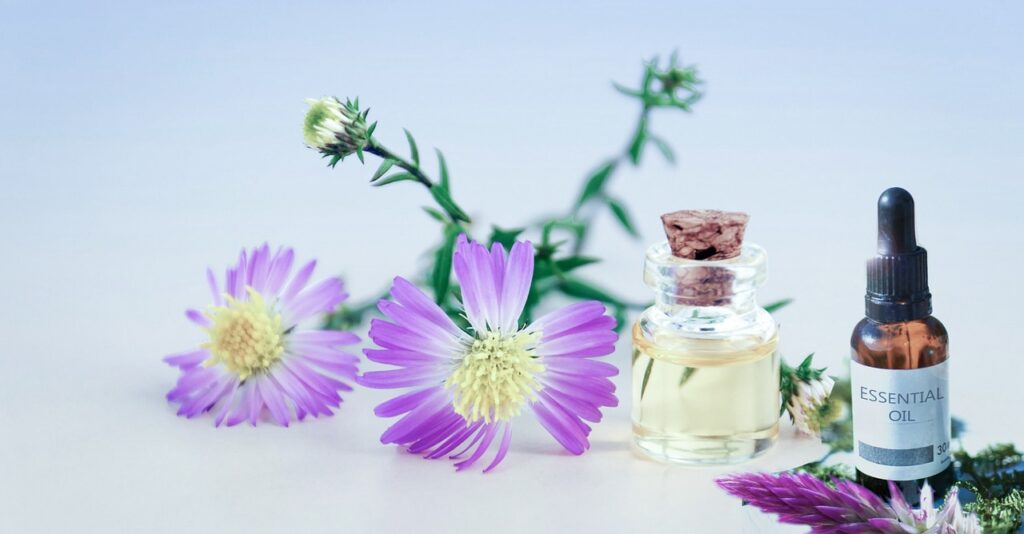
Sleep
Aromatherapy can also be helpful for improving sleep. Essential oils such as lavender and chamomile have a relaxing effect on the body and can help promote sleep. Aromatherapy can also help improve the quality of sleep and reduce the symptoms of sleep disorders such as insomnia.
Nausea
Aromatherapy can be helpful for reducing nausea and vomiting associated with chemotherapy, pregnancy, and other conditions. Essential oils such as ginger and peppermint have antiemetic properties and can help alleviate nausea.
Inflammation
Aromatherapy can also be helpful for reducing inflammation in the body. Essential oils such as frankincense and turmeric have anti-inflammatory properties and can help relieve pain and swelling associated with conditions such as arthritis and other inflammatory conditions.
Asthma
Aromatherapy can also be helpful for managing asthma symptoms. Essential oils such as eucalyptus and peppermint have bronchodilator properties and can help improve breathing and reduce the symptoms of asthma.
Overall, aromatherapy can be a safe and effective way to improve physical health and well-being. It is important to use high-quality essential oils and to consult with a qualified aromatherapist before using aromatherapy for any health condition.
Safety and Precautions in Aromatherapy
As with any form of therapy, it is important to take safety precautions when using aromatherapy. Here are some important safety tips to keep in mind:
Aromatherapy Safety for Kids
When using aromatherapy around children, it is important to take extra precautions. Essential oils can be harmful if ingested, and some oils can cause skin irritation or allergic reactions. Always keep essential oils out of reach of children, and never leave them unattended with oils.
It is also important to dilute essential oils before using them on children. Carrier oils such as coconut oil, almond oil, or jojoba oil can be used to dilute essential oils. The general rule of thumb is to use one drop of essential oil per tablespoon of carrier oil.
Aromatherapy Safety for Pets
Pets can also be sensitive to essential oils. Some oils can be toxic to pets if ingested, while others can cause skin irritation or allergic reactions. It is important to keep essential oils out of reach of pets, and to never use them directly on pets without consulting a veterinarian.
When using essential oils around pets, it is important to diffuse them in a well-ventilated area. Never apply essential oils directly to your pet’s skin, and avoid using oils that are known to be toxic to pets, such as tea tree oil, cinnamon oil, and citrus oils.
Other Safety Precautions
In addition to taking precautions around children and pets, there are other safety considerations to keep in mind when using aromatherapy. Here are a few important tips:
- Always use high-quality, pure essential oils that have been distilled properly.
- Avoid using essential oils that have been adulterated or mixed with synthetic fragrances.
- Check with your doctor before using essential oils if you are pregnant, nursing, or have a medical condition.
- Always follow the recommended dosage and dilution guidelines for each essential oil.
- If you experience any side effects such as skin irritation or allergic reactions, stop using the oil immediately and seek medical attention if necessary.
It is also important to note that the Food and Drug Administration (FDA) does not regulate essential oils, so it is up to consumers to do their own research and ensure that they are using oils safely and responsibly.
In conclusion, while aromatherapy can have many physical and mental benefits, it is important to take safety precautions when using essential oils. By following these tips and using oils responsibly, you can enjoy the many benefits of aromatherapy without any negative side effects.
Aromatherapy as a Complementary Therapy
Aromatherapy is a complementary therapy that utilizes essential oils extracted from plants to promote physical and mental well-being. It is a holistic healing practice that seeks to balance the mind, body, and spirit. Certified aromatherapists are trained professionals who use essential oils to promote relaxation, reduce stress, and alleviate physical symptoms.
Aromatherapy can be experienced in various settings, such as spas, clinics, or at home. It can be incorporated into one’s lifestyle to support overall health and wellness. National Association for Holistic Aromatherapy (NAHA) is a professional organization that promotes the safe and effective use of aromatherapy.

The physiological and psychological effects of essential oils are well-documented. Essential oils can be used topically, inhaled, or ingested to achieve different benefits. For instance, lavender essential oil is known for its calming properties and can be used to reduce anxiety and promote relaxation. Peppermint essential oil is known for its invigorating properties and can be used to relieve headaches and improve mental clarity.
Aromatherapy is a complementary therapy that can be used alongside conventional medical treatments to enhance their effectiveness. It can also be used as a standalone therapy to support overall health and well-being. Aromatherapy is a safe and effective way to promote physical and mental health, and it is a valuable addition to any wellness routine.

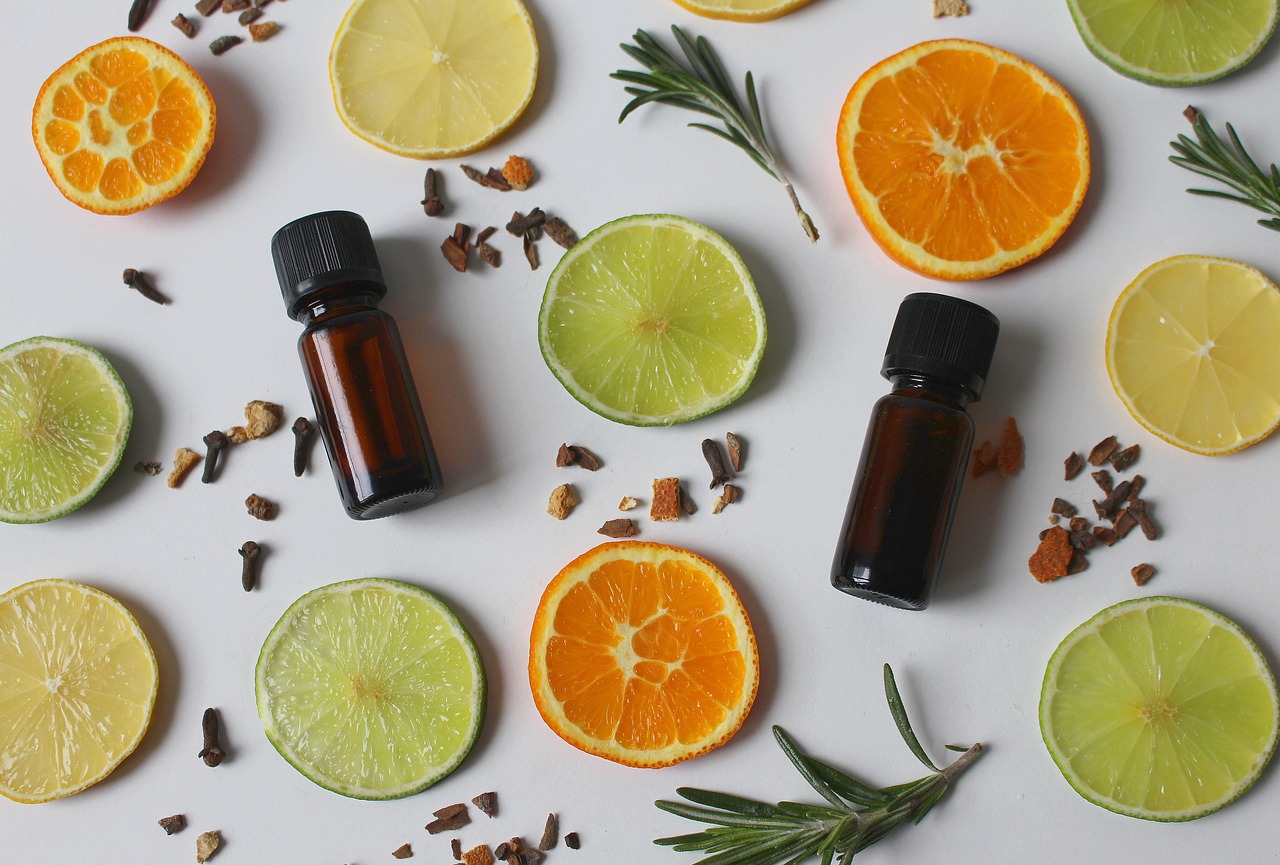



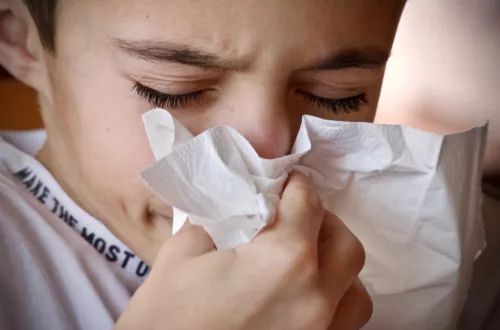


4 Comments on “What are the Physical and Mental Benefits of Aromatherapy? Exploring the Healing Properties of Essential Oils”